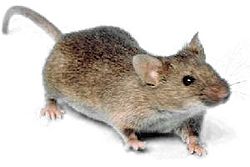単歯類
表示
原文と比べた結果、この記事には多数の(または内容の大部分に影響ある)誤訳があることが判明しています。情報の利用には注意してください。 (2023年3月) |
| 単歯類 | |||||||||||||||||||||
|---|---|---|---|---|---|---|---|---|---|---|---|---|---|---|---|---|---|---|---|---|---|

| |||||||||||||||||||||
| 分類 | |||||||||||||||||||||
| |||||||||||||||||||||
| 学名 | |||||||||||||||||||||
| Simplicidentata Weber, 1904[1] | |||||||||||||||||||||
| 和名 | |||||||||||||||||||||
| 単歯中目[2] | |||||||||||||||||||||
| 目 | |||||||||||||||||||||
単歯類(たんしるい、学名:Simplicidentata)は、哺乳類のグループの一つ。 齧歯目と混歯目を含んでいる。 この用語は上顎の一対の歯の齧歯目、二対の上顎切歯の兎形目と比べて使われてきた。また、齧歯目の代わりとして伝統的に呼ばれてきた[3]。しかし、 単歯類は現生の齧歯目とその祖先的な目を含むと定義されている。このように単歯類はクラウングループだという事がわかる[訳語疑問点]。 この定義によれば第二上顎切歯とP2(第二小臼歯)の欠損が共通特徴とされている。また、基盤的(原始的)な単歯類にはP2があることもある。
分類
[編集]1904年、マックス・カール・ヴィルヘルム・ヴェーバーにより、当時重歯類(兎形類)を下位に含めていた齧歯目を2分するタクソンとして提唱された[4]。ヴェーバーの単歯類、すなわち単歯亜目は重歯亜目を除く齧歯目の現生種すべてを含み、現在の分類体系における齧歯目の範囲と一致する[5]。のちに兎形類は齧歯目の定義から外され独立した目に昇格したが、単歯類の名は混歯目などの絶滅グループをまとめる上位タクソンとして利用されている[1]。
単歯類は1987年にChuankui Liによって提唱され、重歯類とともにグリレス大目を形成する超目として定義された[訳語疑問点]。
出典
[編集]- ^ a b Malcolm C. McKenna & Susan K. Bell, “Mirorder Simplicidentata,” Classification of Mammals: Above the Species Level, Columbia University Press, 1997, Pages 113-211.
- ^ 日本哺乳類学会 種名・標本検討委員会 目名問題検討作業部会「哺乳類の高次分類群および分類階級の日本語名称の提案について」『哺乳類科学』第43巻 2号、日本哺乳類学会、2003年、127-134頁。
- ^ Landry, 1999, p. 286
- ^ Max Weber, “Rodentia,” Die säugetiere. Einführung in die anatomie und systematik der recenten und fossilen Mammalia, Gustav Fischer, 1904, Pages 470-513.
- ^ Michael D. Carleton and Guy G. Musser, “Order Rodentia,” In Don E. Wilson & DeeAnn M. Reeder (eds.), Mammal Species of the World (3rd ed.), Volume 2, Johns Hopkins University Press, 2005, Pages 745-752.
参考文献
[編集]- Landry, S.O., Jr. 1999. A proposal for a new classification and nomenclature for the Glires (Lagomorpha and Rodentia). Mitteilungen aus dem Museum für Naturkunde in Berlin, Zoologische Reihe 75(2):283–316.
- McKenna, M.C. and Bell, S.K. 1997. Classification of Mammals: Above the species level. New York: Columbia University Press, 631 pp. ISBN 978-0-231-11013-6
- McKenna, M.C. and Meng, J. 2001. A primitive relative of rodents from the Chinese Paleocene. Journal of Vertebrate Paleontology 21(3):565–572.
- Meng, J. and Wyss, A.R. 1994. Enamel microstructure of Tribosphenomys (Mammalia, Glires): Character analysis and systematic implications. Journal of Mammalian Evolution 2(3):185–203.
- Meng, J. and Wyss, A.R. 2001. The morphology of Tribosphenomys (Rodentiaformes, Mammalia): phylogenetic implications for basal Glires. Journal of Mammalian Evolution 8(1):1–71.
- Meng, J., Hu, Y. and Li, C. 2003. The osteology of Rhombomylus (Mammalia, Glires): implications for phylogeny and evolution of Glires. Bulletin of the American Museum of Natural History, 275:1–247.
- Meng, J., Kraatz, B.P., Wang, Y., Ni, X., Gebo, D.L. and Beard, K.C. 2009. A new species of Gomphos (Glires, Mammalia) from the Eocene of the Erlian Basin, Nei Mongol, China. American Museum Novitates 3670:1–11.
- Rose, K.D. 2006. The Beginning of the Age of Mammals. Baltimore: The Johns Hopkins University Press, 428 pp. ISBN 978-0-8018-8472-6ISBN 978-0-8018-8472-6
- Szalay, F.S. 1999. [Review of] Classification of Mammals: Above the Species Level (subscription required). Journal of Vertebrate Paleontology 19(1):191–195.
